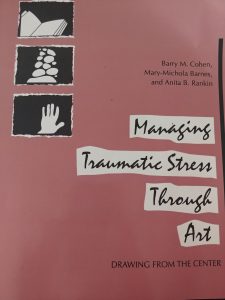Waiting anxiously to speak with her pastor’s wife, Debbie paces back as forth, heart pounding, and thoughts racing through the altercation with her husband the night before.
Surely, Jennifer will be annoyed by me bothering her again. He gets so angry though. I do not know what to do. But what if Mark finds out I am talking to someone about what happened?
Her pastor’s wife, Jennifer, laughs contagiously, chatting about the joys of shopping with little children in the cart, reaching for various products on the shelves until they tumble down into piles on the floor.
I make sure to do the grocery shopping on my own when Mark is at work, hoping it will take some of the load off his plate. Maybe I need to make more of his favorite meals. I do my best to make sure dinner is prepared when he arrives, but it has been difficult to keep the house tidy with four little children, ages four and under. Last night was one of those nights. Maybe if I wake up at four instead of five, I will have more time and energy to clean the way he prefers.
Debbie sighs. A young teenage girl catches Jennifer’s eye, excitedly asking questions about modesty standards and where to find dresses that are modern but do not draw a man’s eyes.
I have already tried learning better techniques for eye shadow and applying lipstick and I even went out and bought the more expensive brands, which only made Mark angrier. I fix up my hair in curls and apply the make-up every day like Jennifer suggested, putting on my best dresses for him with heels. But it just isn’t enough. Maybe he prefers a different style?
Jennifer finishes conversing with the young lady and invites Debbie to join her in the pew, realizing that she has been waiting for an extended period. Holding back the tears, Debbie confides to Jennifer about Mark’s explosive temper last night over the food not being completely set on the table and the sink not being empty of dishes from the day. Debbie knows her husband works long hours at a stressful job site to provide for the family, but even the little things seem to set him off. She shows Jennifer the fresh bruises on her arms. Concerned, Jennifer puts her arms around Debbie, knowing first-hand the pain she endures day-to-day.
“I’m so glad you came to me,” replied Jennifer. “Your hair and make-up look wonderful, and your dresses are modest but beautiful. Have you tried making yourself more available to him in the bedroom? He needs to know that you are willing to be an attentive, submissive wife, and being physically accessible to him at any time would help relieve some of his stress after long days away from the family. A godly wife needs to build her husband’s confidence, but you cannot do that if there is even a trace of bitterness in your heart. If there is, you need to make that right with Mark before asking God’s forgiveness and then ask for His help to be a better help-meet to your husband.”
Tragically, calling the authorities over domestic abuse is one of the last resorts, if not significantly discouraged, in mainstream Independent Fundamental Baptist (IFB) churches. The most common form of counseling is directing the wife on how to be a more attractive, subservient, and fulfilling help-meet, and only minimally instructing the husband to love his wife as Christ loved the church. The end-goal is sending the woman back under the submission of her husband as quickly as possible. Though appalling, the patriarchal system that extends from IFB churches to the homes of their congregants creates the perfect set-up for hidden, long-term abuse through intense isolation, extreme spiritual expectations, financial dependence, silenced cries for help, and the heinously corrupt system of handling trauma and abuse.
Intense Isolation
As “Keepers at Home,” women are expected to balance caring for multiple children and home, while their husbands provide for the financial needs and required manual labor. Pastors intensify these expectations by preaching God’s command to Noah to “Go forth and multiply.” While not associated with the Quiverfull Movement, this idea is quickly permeating into IFB churches around the country as a growing number of pastors advocate against the use of birth control or preventative methods, harrowing “I realized I did not love children as God loves children” and “I want to have all the children God has for me!” Large, growing families, living solely off one income, are forced to be without their husbands and fathers for days or weeks at a time while they work eighty to ninety hours a week, sometimes even out of state, leaving mothers practically alone to raise countless little ones from newborn stages to adulthood.
Because of this, the majority of the mothers’ friends, if not all of them, come from church services and fellowships. They are further isolated solely to their homes and church families because of messages against the dangerous influences of family, friends, television, and social media on their husbands’ vineyards, preventing nearly all outside thought or persuasion. A timid and likely uneducated, married woman with the strain of multiple children is of little threat when dependent upon the husband’s income, filled only with countless hours of studying Christian homeschool materials and Sunday school lessons.
Extreme Spiritual Expectations
A former missionary wife, now pastor’s wife, recently taught a group of missionary-wives that the virtuosity of the Proverbs Thirty-One Woman is not limited to religious circles but is exemplified in women in certain third-world countries. Because of this, she concludes that even the lost can be virtuous, and thus, the Proverbs Thirty-One Woman, also known as the Virtuous Woman, is the bare-minimum standard in God’s eyes. Because of twisted views of this passage, wives and mothers are expected to learn the intricate, time-consuming practices of sewing, crocheting, knitting, craft-making, and decorating on top of their usual household chores and daily homeschool program. Where better to put those skills to use than to make specialized, modest clothing!
In terms of appearance, wives must balance between keeping their husband’s attraction while being held responsible for, or while assuming responsibility for, not drawing another man’s attention to any aspect of their bodies, whether through dress, make-up, or jewelry. Following late nights of sewing, crafting and cleaning, women are still expected to rise early for Bible reading, study and prayer, in order to joyfully instill Biblical precepts into their children throughout the day, without complaint, “Just like the Virtuous Woman.” Sadly, any regular sharing of the responsibilities of child-rearing and house-work between the husband and wife marks a wife non submissive and and the husband less-than a man, leaving the burden entirely on the woman.
Financial Dependence
Pastors encourage husbands to take a man’s “rightful place” over the finances, not considering individual weaknesses and strengths, often leaving women completely helpless after the men pass away, ignorant of their financial standings. Take a mother of six children, educated through Bible college, now clueless about the amount their family spends each month on the phone bill, even indifferent to the fact that she does not even know her family’s mobile carrier. Imagine a woman whose husband cannot hold a job, but even with a steady occupation for a few months, he writes the tithe check with varying amounts every week. She does not understand why it fluctuates with two fixed incomes but encourages herself to trust the man God has placed over her without question. Lamentably, these examples are just the tip of the iceberg. Women are taught it is acceptable and godly to be ignorant of the finances, trusting in and submitting all of it to the leading of their husbands as heads of their households.
Silenced Cries for Help
“Nevertheless let every one of you in particular so love his wife even as himself; and the wife see that she reverence her husband” (Eph 5:33).
“Her husband is known in the gates, when he sitteth among the elders of the land” (Prov 31:23).
The wide-spread view of authority in the husband-wife relationship in IFB churches involves a scenario where the man lords over his vineyard, the woman in complete subjection to the husband without argument or complaint unless his commands go directly against the Word of God. Women may express their opinions by making “godly appeals,” but are to otherwise remain silent after a man decides, cleaning up the aftermath in the lives of those affected, still honoring and uplifting the husband’s actions. A woman’s speech pertaining to her husband is only permitted to be respectful and reverential, severely limiting disagreement or varying opinion, except in extreme cases of abuse and wrong-doing. Even in these situations, speaking-up is frequently viewed with disdain and regularly discounted based on the man’s public testimony.
In the secular world, degrading one’s spouse privately or publicly is considered detrimental to a marriage and though the same is equally true in Christianity, IFB churches place the greater burden of silence on the women. Remember the pastor’s wife who says that a wife should never say anything negative about her husband to God? If a woman cannot even go to God, how much more does this fallacy apply to speaking to other men and women? The same pastor’s wife believes an abused wife should be sent back under the subjection of her husband. Pastors encourage women who are verbally abused to pray for their husbands and ask God to aide them in being a better help-meet, while those who are physically abused are admonished to never involve the authorities, despite the immediate danger to their families. Above all, a wife must be careful not to speak ill of her husband to anyone lest her speech impact her husband’s reputation in the ministry or hinder someone from accepting Christ. She is to go home, be a living-testimony to her husband as a godly, submissive wife, and pray not only for God to change his heart, but to help her love and forgive, that bitterness not take root in her heart. This silencing, under the preface of humility and honor, fashions the final piece of the overriding theme of male dominance and control, allowing domestic abuse free-reign in the home.
The Perfect Storm
Stepping outside onto the wooden porch, the warm summer air is dense and suffocating, blustering upwards from the south, blanketing the heavens with a familiar yet disconcerting green hue. Soaring eagles feel the chilly shift and instability up above, frigid air billowing in from the west. But in between lies a third layer of dry, burning heat, allowing the warm air below to rise in temperature, establishing conditions for the perfect storm: an F5 tornado with the ability to span up to two and half miles wide, indifferent to the unlimited destruction in its path. Through the innocent desires of Christians to please the Lord in their marriages, canopied by man’s need for dominance and control, men blindly lead their willingly-submissive wives into abuse’s strongholds of vulnerability and entrapment.
What is a woman like Debbie supposed to do with an abusive husband like Mark? Anyone outside the church walls recognizes the need to get the authorities involved, keeping detailed records and escaping to a safe-house or woman’s shelter, but hindering a husband’s reputation or arrogantly stepping out from under his God-given authority is considered disgraceful and scorned. Those necessary lines of protection are blurred within the IFB movement, encouraging biblical counsel through the limited psychological study of a pastor, rather than through a trained, experienced professional. Debbie is isolated to her home with friendships limited to her like-minded church family, she has no college education, and has been out of the workforce for fifteen years. Not only is she undesirable to employers, she is clueless about her financial standings and what money might be available to her for sustainability as she considers her and her children’s escape from her husband’s destructive temper.
If she confides in a pastor, few may advise reporting the abuse, but others may bring the husband into the room for questioning and counseling, creating a greater tension and danger when the family arrives back at home. Alternately, some are encouraged to ask God to search-out their own heart for what may be hindering their marriages and fueling their husband’s anger, taking a “wait-and-see” approach. Sadly, those are just the ones that dare to speak the truth against the status-quo of solely uplifting their husbands, whether they be right or wrong. Others continue silently in the abuse, justifying the verbal and physical beatings day by day, striving to be a godly submissive wife, while some never fully awaken to the cruelty they endure. The standard Independent Fundamental Baptist arrangement for leadership and submission in church polity, as well as the home, though usually starting from the pure desire to do right, creates the perfect storm for long-term, hidden abuse in families throughout their churches..
*Disclaimer* This series, “Why Am I a Baptist?” is NOT an exhaustive list of IFB doctrine. Because of the autonomous nature of IFB churches, this evaluation is of the movement as a whole, rather than a hard-and-fast rule. It may be possible to find healthy IFB churches, but they are few and far between because of various associations known as “camps,” typically surrounding well-known preachers or preference of worship style.
Why Am I a Baptist?
IFB Doctrine: The Baptist Distinctives
IFB Churches: Patriarchy in Church Polity (Part One)
IFB Churches: Patriarchy and the Leading Lady (Part Two)
IFB Churches: Patriarchy in Marriage (Part Three)
IFB Churches: Patriarchy and Keeping at Home (Part Four)
IFB Churches: Patriarchy and Sexual Obedience (Part Five)
IFB Churches: Patriarchy and Domestic Abuse (Part Six)
IFB Standards: Rigid Music and Dress Standards (Part One)
“About Tornadoes.” Weather Underground, www.wunderground.com/resources/education/tornadoFAQ.asp.
********
Shop at our Amazon store! As an Amazon Influencer, this website earns from qualifying purchases.


 Take a moment and allow your mind to drift off to a specific location or place where you have experienced comfort. Are you by a river or stream? In the forest? In a log cabin far away from any living soul? Are you reading a book or taking a long, hot bath? Is anyone there with you or are you by yourself?
Take a moment and allow your mind to drift off to a specific location or place where you have experienced comfort. Are you by a river or stream? In the forest? In a log cabin far away from any living soul? Are you reading a book or taking a long, hot bath? Is anyone there with you or are you by yourself? Have you ever experienced those therapy sessions where one simple phrase or question seems to blast a door wide open into the possibilities of individualized treatment that might actually work? Well, it was not my own session that accomplished this. It was my husband’s session when he told our therapist that I like to doodle and be creative and my therapist had an idea that changed everything for me in terms of personal growth and development. My therapist gave me a means of expression and processing that I had given up hope for through a book by entitled
Have you ever experienced those therapy sessions where one simple phrase or question seems to blast a door wide open into the possibilities of individualized treatment that might actually work? Well, it was not my own session that accomplished this. It was my husband’s session when he told our therapist that I like to doodle and be creative and my therapist had an idea that changed everything for me in terms of personal growth and development. My therapist gave me a means of expression and processing that I had given up hope for through a book by entitled 

